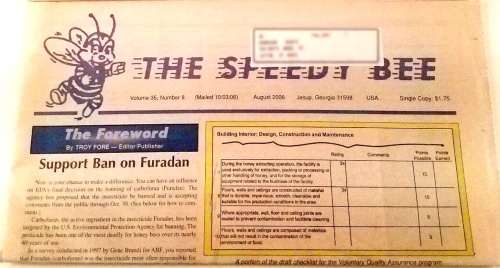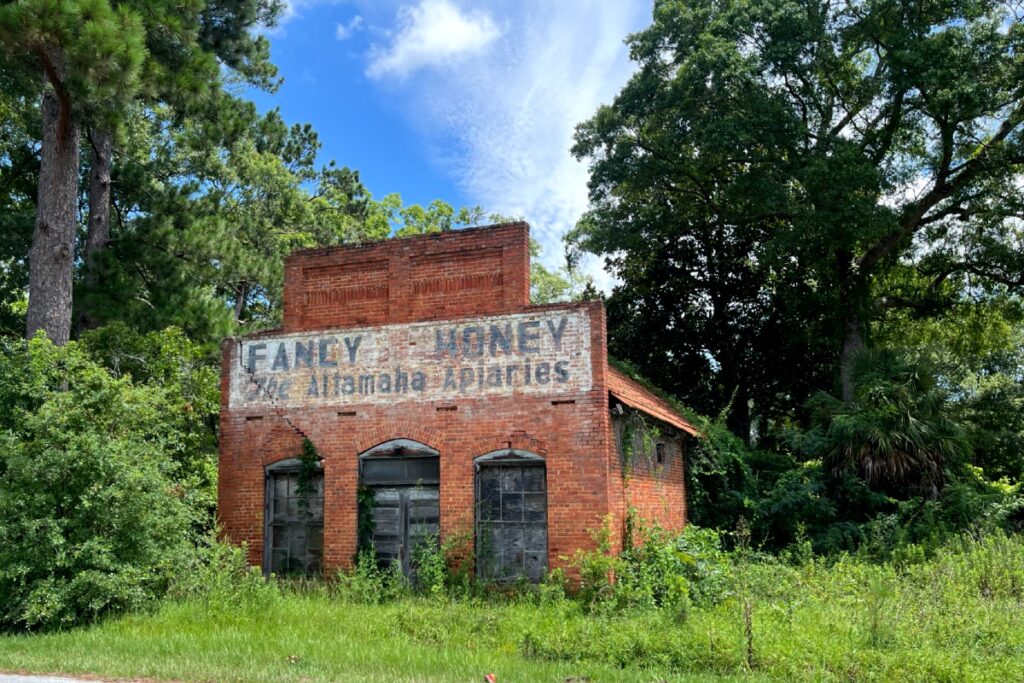By Elliott Brack
Editor and Publisher, GwinnettForum
JULY 9, 2024 | As you age, you go to more funerals. We’ve been to four in the last month.
![]() One who died recently became a close friend and was of immense help to me when first publishing a weekly newspaper in Jesup, Ga. He was Troy Fore Jr., a tall, bald-headed and friendly fellow who joined the newspaper staff, covering news stories and, in particular, board of education meetings, which met at the same time as the county commission meeting, which I covered. But he was more than that: Troy was a photographer, columnist, adviser and counselor.
One who died recently became a close friend and was of immense help to me when first publishing a weekly newspaper in Jesup, Ga. He was Troy Fore Jr., a tall, bald-headed and friendly fellow who joined the newspaper staff, covering news stories and, in particular, board of education meetings, which met at the same time as the county commission meeting, which I covered. But he was more than that: Troy was a photographer, columnist, adviser and counselor.
He returned to his home county after the University of Georgia and started what his father had taught him, beekeeping. His Fore’s Honey farm was just south of Jesup in Gardi on U.S. Highway 341. He specialized in tupelo honey, that high-end nectar that comes from the blossoms of the white Ogeechee tupelo trees along the Altamaha River basin east of Jesup.
Troy had no journalism experience when he joined our staff about 1965, still keeping his honey business. He was a quick learner. But he was more than a staff member. We became friends discussing local and world affairs.
Years later, when the two Jesup weekly newspapers were combined, Troy was named acting editor, then associate editor, and finally editor of the combined Press-Sentinel.
Troy was no ordinary beekeeper. He found creative ways to innovate, soon putting his bees to work as a migratory beekeeper. Starting in 1970, he would load all his hives of buzzing bees on an International flatbed truck, covering it with a massive net to ensure the bees stayed with him. He would haul those bees that first year with his wife, Mary, and young son, all the way to North Dakota to pollinate crops. He found this rewarding, and did it annually. He also loaded his bees at another time of year, this time turning south, heading to the Florida coast, where he drove his truck onto a boat to land in Abaco in the Bahamas, to pollinate cucumbers.
Beekeepers need special items you don’t find in the hardware store to keep their business going. Well before Internet days, to order supplies and equipment, you advertised in national publications. But it would take three months from the time you placed an order or advertised for something, and the time you actually received what you needed.
 Troy, ever the innovator, used his newspapering skills to start his own publication, The Speedy Bee, a monthly trade newspaper, which would turn around advertisements within a month, hence the name. It quickly caught on and was published for years until the Internet took it out. It was a lot of hard work to get the names of beekeepers to mail to, but Troy combed records of the various state Departments of Agriculture to establish his mailing list.
Troy, ever the innovator, used his newspapering skills to start his own publication, The Speedy Bee, a monthly trade newspaper, which would turn around advertisements within a month, hence the name. It quickly caught on and was published for years until the Internet took it out. It was a lot of hard work to get the names of beekeepers to mail to, but Troy combed records of the various state Departments of Agriculture to establish his mailing list.
Meanwhile, the publication led to Troy becoming well-known within the national beekeeping community, as he also attended state and national bee conventions. By 1988, after being on its board, the American Beekeeping Federation named him its executive director. For nearly 20 years, Troy was an advocate for the industry, testifying before congressional committees and hearings. He was responsible for organizing the association’s activities and conventions. He particularly worked with individuals on policymaking for the industry when plagues of Africanized bees threatened the American bee industry.
Troy, ever with foresight, was instrumental in establishing the Foundation for the Preservation of Honey Bees, a charitable research and educational foundation to support the health and propagation of honey bees.
Troy Fore Jr., 1945-2024, a fast friend. May you rest in peace.
- Have a comment? Click here to send an email.











Follow Us